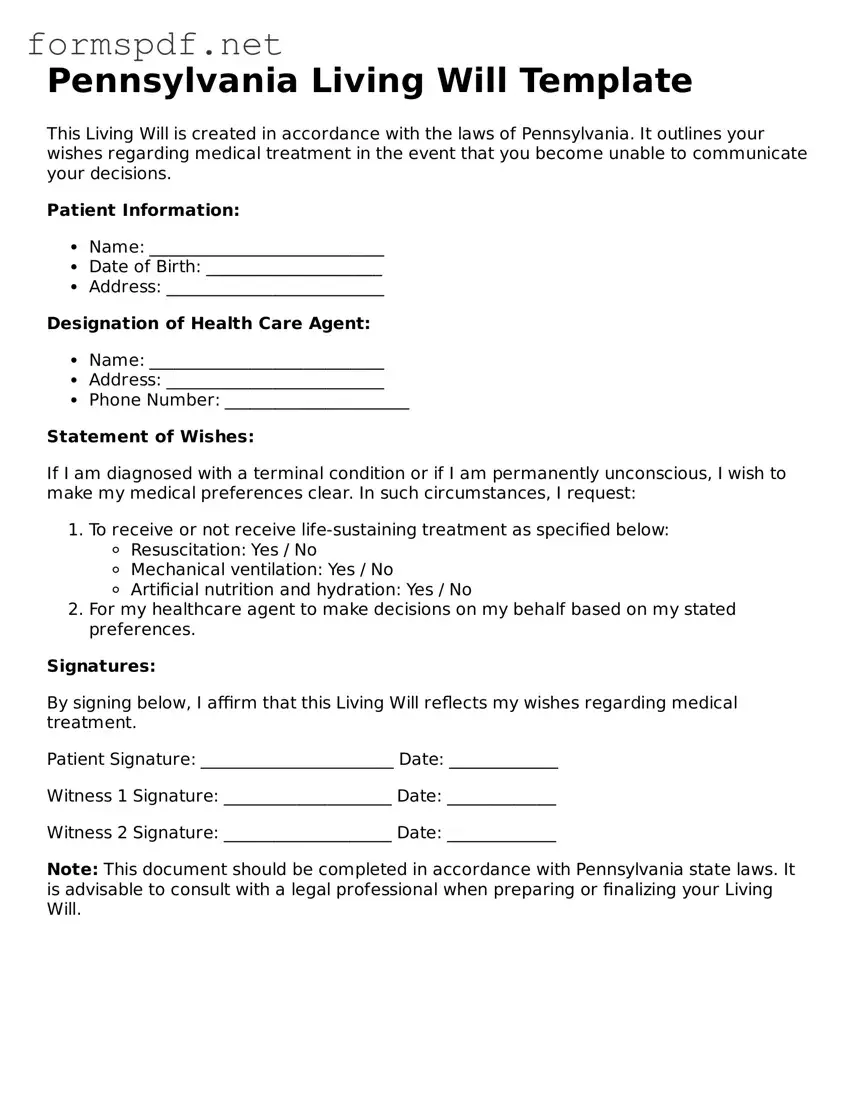Free Living Will Form for Pennsylvania
The Pennsylvania Living Will form is a legal document that allows individuals to outline their preferences for medical treatment in the event they become unable to communicate their wishes. This form provides guidance to healthcare providers and loved ones regarding end-of-life care decisions. Understanding and completing this document is essential for ensuring that one's healthcare choices are respected.
Take the important step of filling out your Pennsylvania Living Will form by clicking the button below.
Launch Editor Now

Free Living Will Form for Pennsylvania
Launch Editor Now

Launch Editor Now
or
⇓ Living Will PDF
Don’t leave without finishing the form
Finish your Living Will online and download the final version.